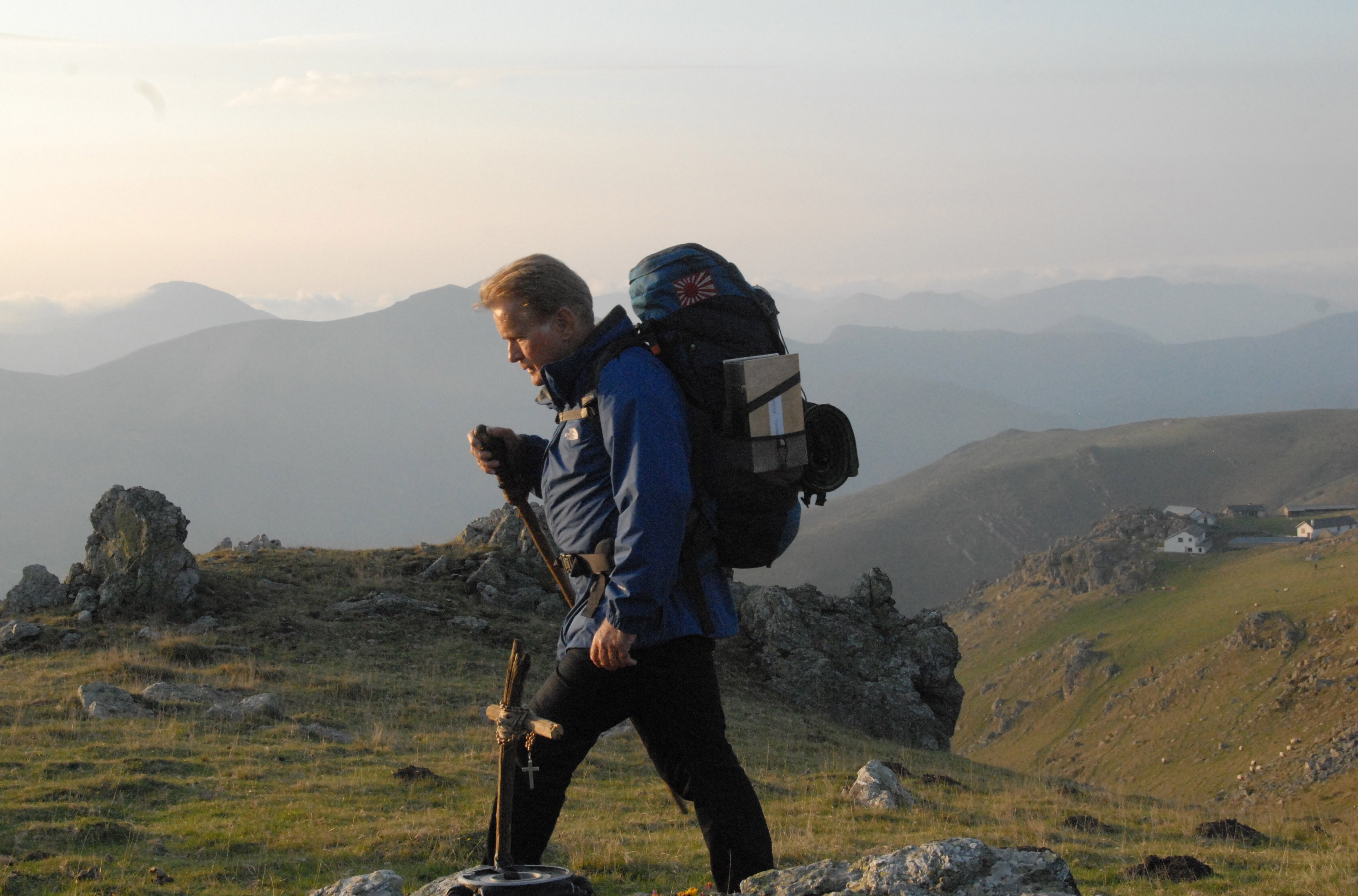
MPAA Rating: PG-13 | Rating: ★★★
Release year: 2011
Genre: Adventure, Drama, Spiritual Director: Estevez
I love hiking, both literally and figuratively. Literally, I love the walk, the journey from one location to another on my own two feet, pushing myself up hills and over obstacles until I’ve reached a new vista. Figuratively, I appreciate the spiritual metaphor of being a pilgrim on a journey with God, that discipleship requires following someone and Jesus talks about narrow paths and walking with Him. So films about pilgrimages and sojourners traveling long distances have always felt inspiring to me. However, like hiking, most of these pilgrim films can be just as tedious as hiking itself, requiring discipline and tenacity to appreciate its concluding catharsis.
The Way is no exception. It is a pilgrimage film. Written and directed by Emilio Estevez, it stars Estevez’s father, Martin Sheen. Sheen portrays Tom, an eye doctor with a chip on his shoulder. When Tom gets the news that his estranged adult son has died in a tragic accident, Tom travels to France to take care of the body. Tom’s son, Daniel (played by Estevez in flashbacks) was an adventurer and wanderer who was about to embark on the El Camino de Santiago, also known as The Way of Saint James. Its route crosses from France into Spanish Basque country, eventually ending in Galicia at the Cathedral of Santiago de Compostela where the remains of Saint James are traditionally buried. In a grief-filled decision, Tom cremates the body, picks up Daniel’s loaded backpack, and heads off on the pilgrimage, spreading the ashes of his son along the way. As Daniel once put it, “you don’tchoose a life, Dad. You live one.”
You can see the spiritual metaphors already. Tom grieves and grows as he travels, though his stoic demeanor only allows glimpses of his internal process. A few fellow pilgrims create a fellowship of sorts around Tom. There’s Joost, the overweight and loud-mouthed Dutchman. Sarah is the embittered Canadian harboring some deep wounds. Jim from Ireland is a writer trying to overcome writer’s block along the camino. The unlikely quartet end up traveling together, usually to Tom’s dismay. He’s a loner by nature. But none of us really travel well alone; we need an authentic community to journey with us. This community ends up shaping each other, finding healing together where they couldn’t alone.
Like an earlier film from this year with a similar name–Peter Weir’s The Way Back—The Way is filled with beautiful shots of sweeping vistas and tiny travelers against gorgeous natural backdrops. The two film feels long and often difficult to keep oneself engaged–there are numerous long shots of people just walking–but, like a good hike, it is worth the effort.The Way is particularly spiritual, with many scenes set in churches and featuring prayers. Martin Sheen is a practicing Catholic himself, and while Estevez describes himself as “secular,” he recently said this about his film in an interview with Christianity Today:
“I just wanted to make an honest film,” he says. “If you’re a person of faith, you’ll find something in this movie that speaks to you. If you’re not, you’ll find something of interest too. But what I love about the Camino is that the road is a metaphor for our lives: Are we walking in truth? Are we walking with integrity? That’s what speaks the loudest to me in this film.”
Those two questions are powerful ones for our spiritual journeys. Am I walking in truth? Am I walking with integrity? Who are my fellow travelers, the ones who will pick me up when I fall and keep me going when I’m tired?
As the weather has become more bearable here in Arizona, our little family has been taking long walks in the evenings. These moments are the finest of my day. We talk, we laugh, we run, we play. But, mostly, we are pursuing being present with each other. We walk together. It’s the best possible way to travel.
IMDB Listing: http://www.imdb.com/title/tt1441912/